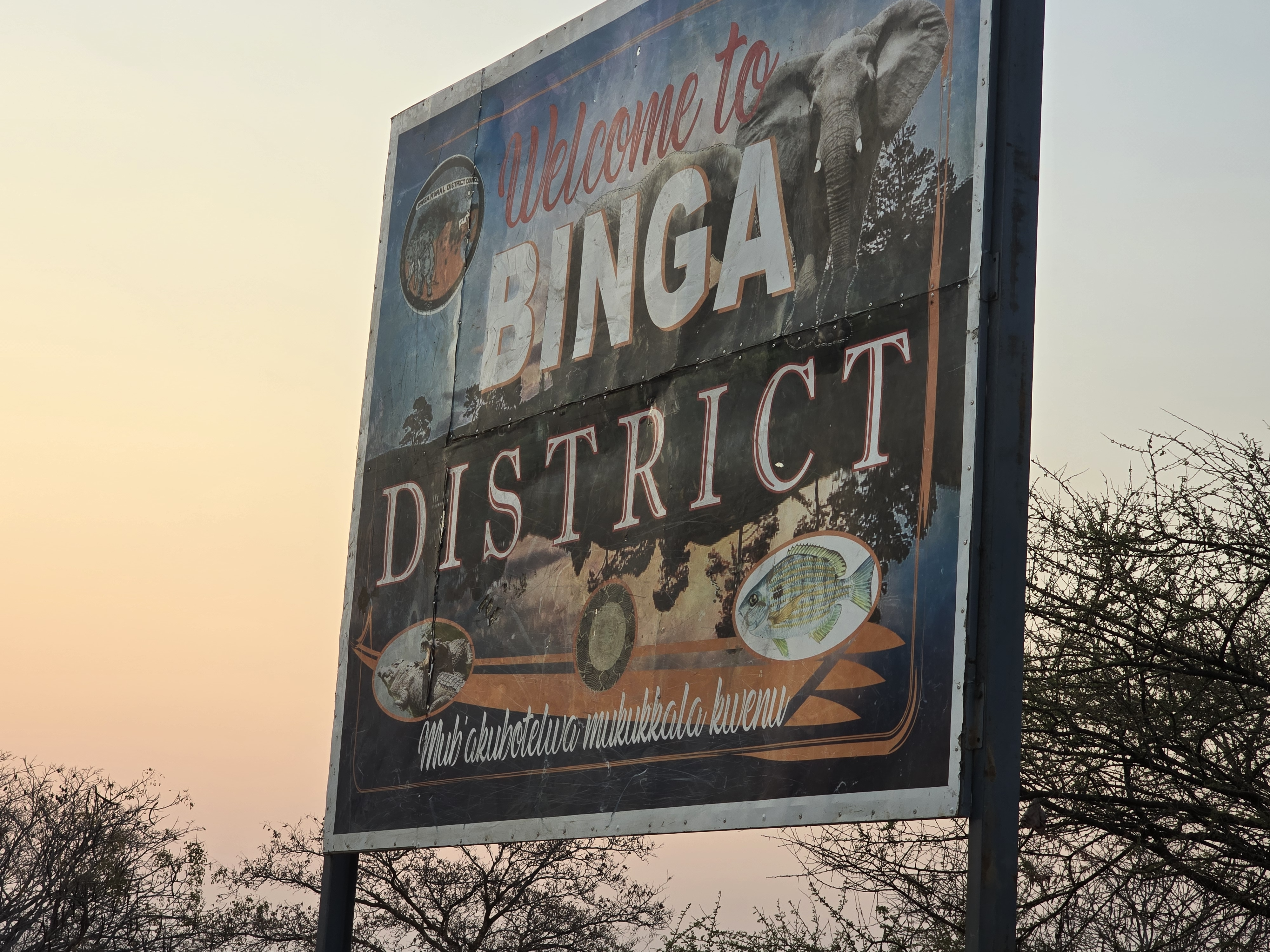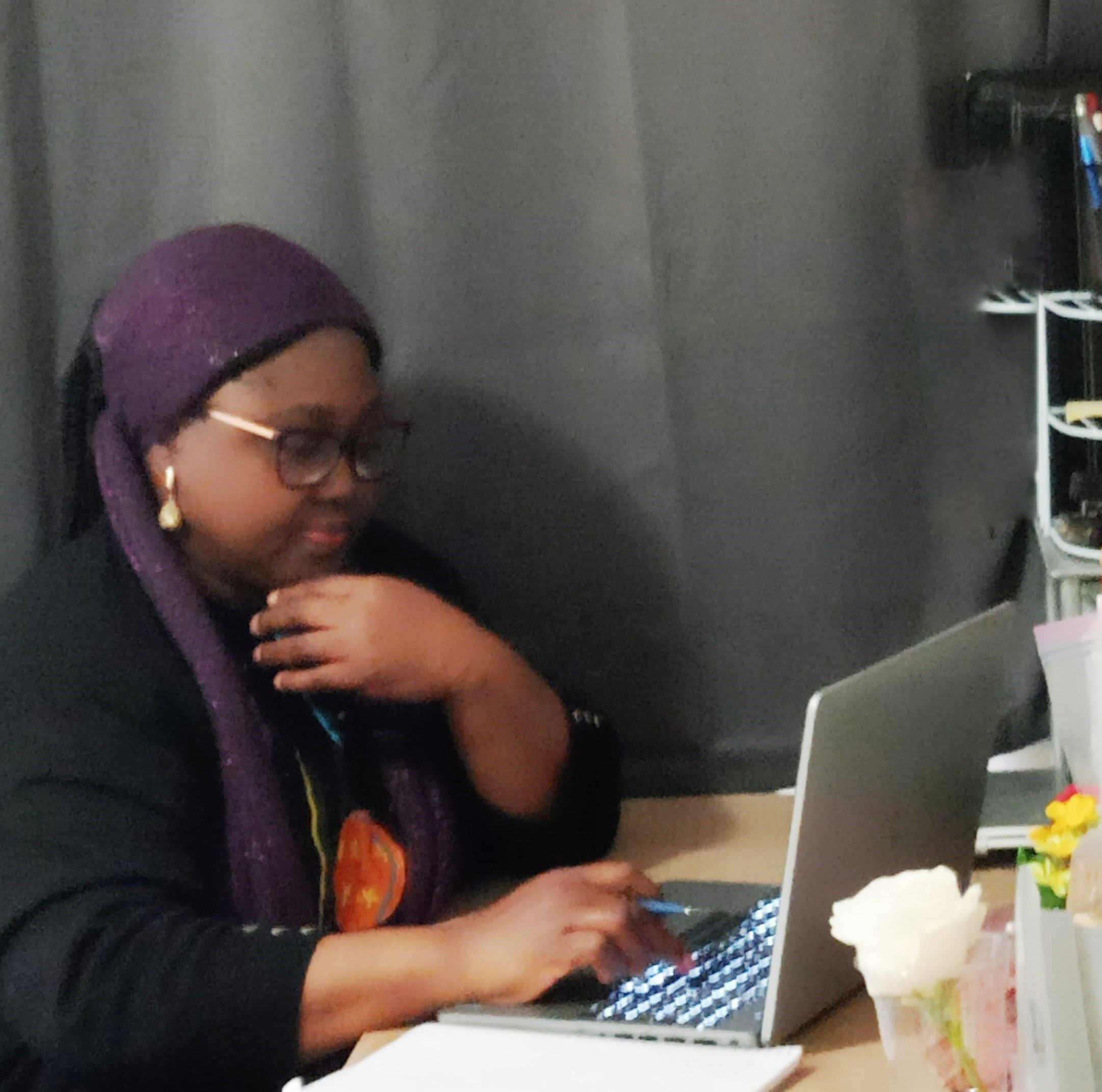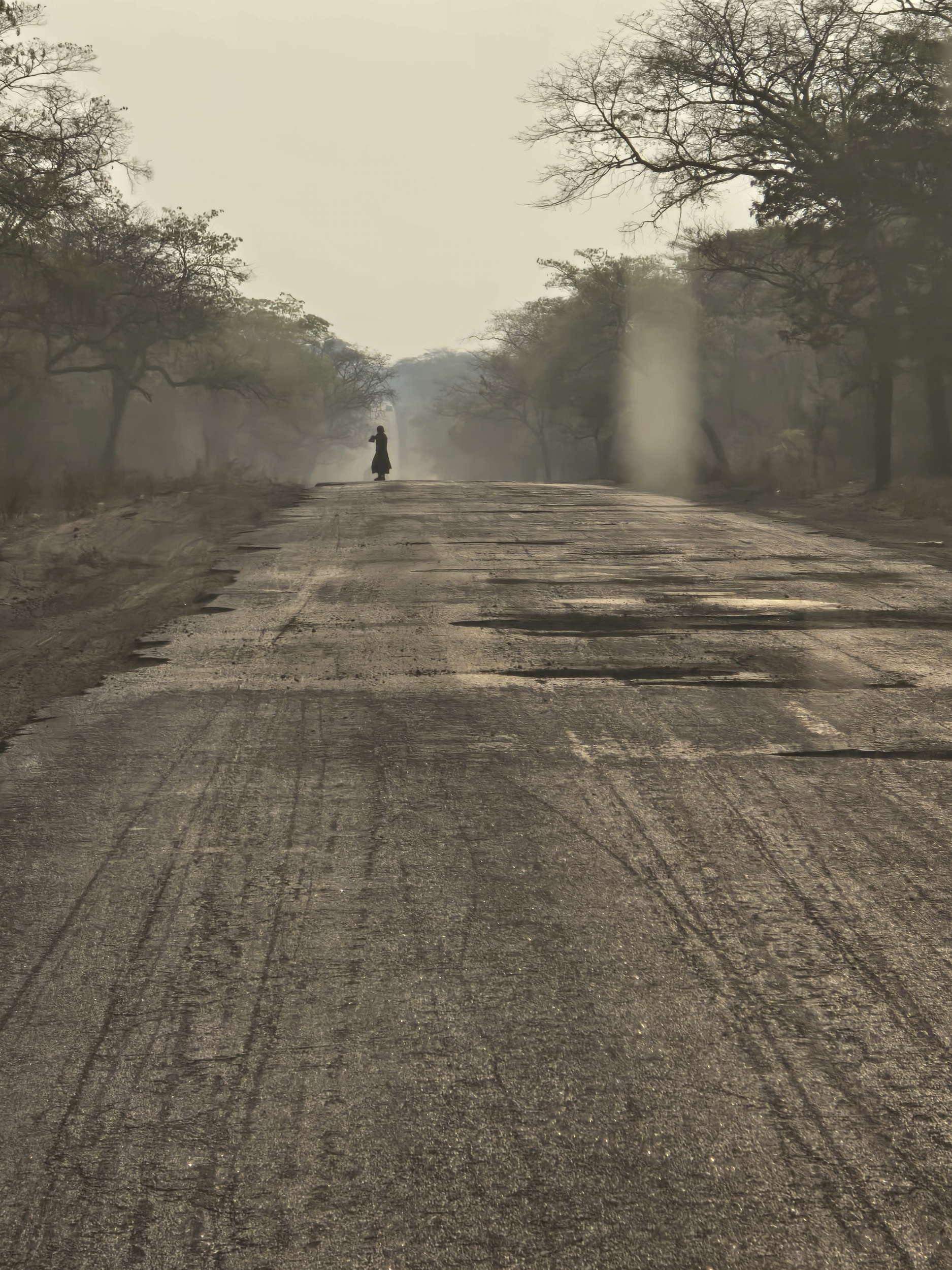
Gazing Into the Mirror of Climate Adaptation: An RA's Reflections from the LINCZ Project in Zimbabwe

I'll never forget that first set of interview videos I received from Prof. Arnold. Sitting on my chair at home, watching the interview video play on my laptop atop my work table, where I remote work, I was struck by a woman's words from Mwenezi village in Zimbabwe: "She's bringing the issue of domestic violence, as a result of no food in the house."
My hand froze over my notebook. In that moment, thousands of miles from my home in Nigeria's Delta State, I felt the uncomfortable familiarity of a truth I'd witnessed before.
On My Personal Journey through Professional Encounters

Let me back up. I'm Chika—Chikaodili Rosemary Iwobi to be precise. Over ten years as a lawyer in Delta State Ministry of Justice, Nigeria, taught me plenty about conflicts over resources, but nothing prepared me for the strange symmetry I'd find between my homeland and Zimbabwe through this research assistant position at Canadian Mennonite University.
I remember sitting across from oil executives in air-conditioned offices in the Niger Delta, then driving hours to meet with villagers whose fishing grounds were vanishing. Now I'm transcribing interviews of farmers whose rain patterns have betrayed them—different countries, opposite environmental problems, eerily similar human consequences.
I've spent months now helping Prof. Arnold analyze these transcripts, parsing through stories of communities grappling with drought while I think about how the flooding back home forces similar adaptations. It's truly peculiar how weather—too much water or too little—can completely upend people's relationship with ancestral lands that once felt reliable and known.
I recalled mediating disputes between communities and companies in the oil regions—when resources dwindle, fractures appear along existing fault lines.
I remember sitting across from oil executives in air-conditioned offices in the Niger Delta, then driving hours to meet with villagers whose fishing grounds were vanishing. Now I'm transcribing interviews of farmers whose rain patterns have betrayed them—different countries, opposite environmental problems, eerily similar human consequences.
I've spent months now helping Prof. Arnold analyze these transcripts, parsing through stories of communities grappling with drought while I think about how the flooding back home forces similar adaptations. It's truly peculiar how weather—too much water or too little—can completely upend people's relationship with ancestral lands that once felt reliable and known.
I recalled mediating disputes between communities and companies in the oil regions—when resources dwindle, fractures appear along existing fault lines.
On Gender Dynamics in Climate Adaptation

Photo taken by Dr. Jobb Arnold in 2024 in Binga district, Zimbabwe.
The gender dynamics hit hardest. Women bearing impossible burdens as food providers when the earth yields nothing. Men drowning shame in alcohol when they can no longer fulfill provider roles. One transcript noted: "The money that was supposed to be used to buy food is now being used by the father to drink beer." I've seen this story before, just with different characters.
Back home in the Niger Delta, I watched as flooding destroyed not just homes but the very fabric of family relationships. And in Zimbabwe, it's drought that tears at these bonds, but the human response feels hauntingly familiar. The transcripts reveal how drought reshapes gender identities in ways both subtle and profound. A grandmother described how young girls are being pushed into early marriages: "early pregnancies as a result of trying to find something, where they can get food, some of them are being lured by those with better lives."
It is quite striking how climate change amplifies existing fault lines in gender relations. It doesn't create these inequalities—they were always there—but it pressurizes them until something breaks. Usually, it's women who absorb the shock first. They eat last, sacrifice most, and face violence when the system collapses. One transcript put it plainly: "drought and its effects is linked to the cases of domestic violence." Simple cause and effect, spoken without surprise. In both the Niger Delta and Zimbabwe, masculine identity remains tightly bound to provider status. When climate change makes this role impossible to fulfill, the resulting identity crisis often turns toxic.
These insights aren't just academic observations for me. I understand that my perspectives aren't just informed by academic training but by lived proximity to these struggles, right from my days mediating community conflicts back home. Each transcript I process for this project feels like both new information and familiar territory, adding depth to understanding I've been building across continents and contexts. The women's voices from Zimbabwe speak to the women I knew in Nigeria, and sometimes, in quiet moments of transcription, I feel them speaking directly to me.
On Cultural Shifts and Traditional Practices
I am deeply troubled by the abandoned traditions, this erosion of traditional practices that once helped communities navigate environmental changes. "The ceremonies we used to know were done for rain to be received, now has changed. So time is changing," an elder lamented. Multiple interviewees mentioned the abandonment of rainmaking ceremonies: "some of the community members are saying there were some traditions that used to be done to promote rainmaking and their yields... But nowadays, they are not followed." That made me remember my late grandmother, who knew exactly which plants signaled coming floods, the appearance of which bird signified the right time to plant, knowledge nobody in my generation has bothered to learn, cultivate or practice. Progress seems to have its heavily hidden price, doesn't it?
On Policy Misalignment and Adaptation Challenges
My legal mind keeps circling back to policy frameworks. During my MA studies in Peacebuilding here at CMU, I discerned from many of the research I engaged with just how disconnected policies can be from lived realities. In theory, Zimbabwe has climate adaptation policies. Nigeria has environmental protection laws. Yet in both places, I've witnessed the yawning gap between legislation and implementation.
On Theoretical Frameworks: Making Sense Through Chaos
Prof. Arnold introduced me to concepts that have helped me make sense of all this chaos. Sense of Coherence—this idea that people need to understand what's happening, feel they can manage it, and find meaning in their efforts. I see communities struggling to maintain this coherence when weather patterns they've relied on for generations suddenly shift.
The Integrative Complexity methodology has been eye-opening too. It's fascinating to trace how community members navigate conflicting imperatives—honor traditions while embracing new methods, maintain cultural identity while adapting to environmental realities. Some people get stuck in rigid thinking, while others develop remarkable capacity to integrate contradictory truths.
The Integrative Complexity methodology has been eye-opening too. It's fascinating to trace how community members navigate conflicting imperatives—honor traditions while embracing new methods, maintain cultural identity while adapting to environmental realities. Some people get stuck in rigid thinking, while others develop remarkable capacity to integrate contradictory truths.
On Conservation Agriculture: Beyond Drought Response
I find myself thinking: what would I have wanted back in the Niger Delta? Definitely not just outsiders with technical solutions who never bothered to understand our cultural context. Maybe that's why I'm drawn to the conservation agriculture approaches some Zimbabwe communities are adopting. These methods—minimal soil disturbance, permanent cover crops, diversification—they're not just drought solutions. They could work wonders in Nigeria's non-drought regions too, preventing the degradation that makes communities vulnerable in the first place.
When I was working on land disputes in the Niger Delta, I often thought: we're always responding to crises, never preventing them. If we'd adopted sustainable farming techniques before the oil companies arrived, perhaps our communities would have been more resilient to the changes that followed. The disputes I mediated frequently centered around contaminated farmlands and waterways, with communities suddenly unable to sustain traditional livelihoods. These weren't merely economic issues but profound cultural disruptions—families who had farmed the same land for generations were abruptly severed from their ancestral practices. The reactive nature of our interventions meant we were constantly trying to compensate for losses rather than building capacity for communities to adapt. By the time legal remedies were implemented, irreversible ecological and social damage had often occurred. This experience has made me particularly attentive to the preventative potential of approaches like Conservation Agriculture in regions not yet experiencing severe environmental degradation.
Conclusion
Sometimes I wonder what my colleagues back at the Ministry would think of me now—the former State Counsel analyzing transcripts about rainmaking ceremonies and domestic conflicts over failed harvests. But this feels like exactly where my journey needed to lead. My legal training taught me to look for patterns, my peacebuilding education to seek root causes, and my Nigerian heritage gives me an insider-outsider perspective on another African nation's struggles.
I must admit, I have a growing list of research questions: How might gender-responsive climate adaptation prevent domestic violence during crop failures? What would policy frameworks look like if they truly integrated traditional ecological knowledge? Can we build bridges between scientific climate predictions and cultural meaning-making? If so, how?
The LINCZ project's focus on locally led Indigenous approaches reflects the belief that empowering communities to lead adaptation efforts is not only more sustainable but also more effective. Supporting these grassroots initiatives requires an understanding of both the ecological and psychosocial dimensions of adaptation, making this project vitally important. At its core, the LINCZ project aims to help communities navigate change while holding onto what matters most, ensuring that adaptations to our changing climate honor both human dignity and environmental wisdom.
Now, as I walk along Pembina Hwy, melting snow squishing under my boots—so different from the humid heat of my home country—I think of the abundance of water that I'm so privileged to easily and freely access in this beautiful city of Winnipeg, which I now call home. I think of Binga, Gwanda, and Mwenezi, where families anxiously scan the horizon for rainclouds, where women strategize daily on how to stretch dwindling food supplies, where elders lament traditions slipping away with each failed harvest. I carry these Zimbabwean voices with me. Their struggles and resilience have become woven into my own life journey—shaping how I see the world, pushing me to question more, to understand more. Even though we're separated by miles, our stories are cut from the same cloth, stitched together by the realities of survival, adaptation, and hope. This isn't just research for me. It's personal. It's about truly listening, learning, and making sure that the voices of those living through these challenges aren't just heard but centered in the solutions we strive for.
Chika Iwobi
RA to Dr. Jobb Arnold
Psychosocial Adaptation to Climate Change